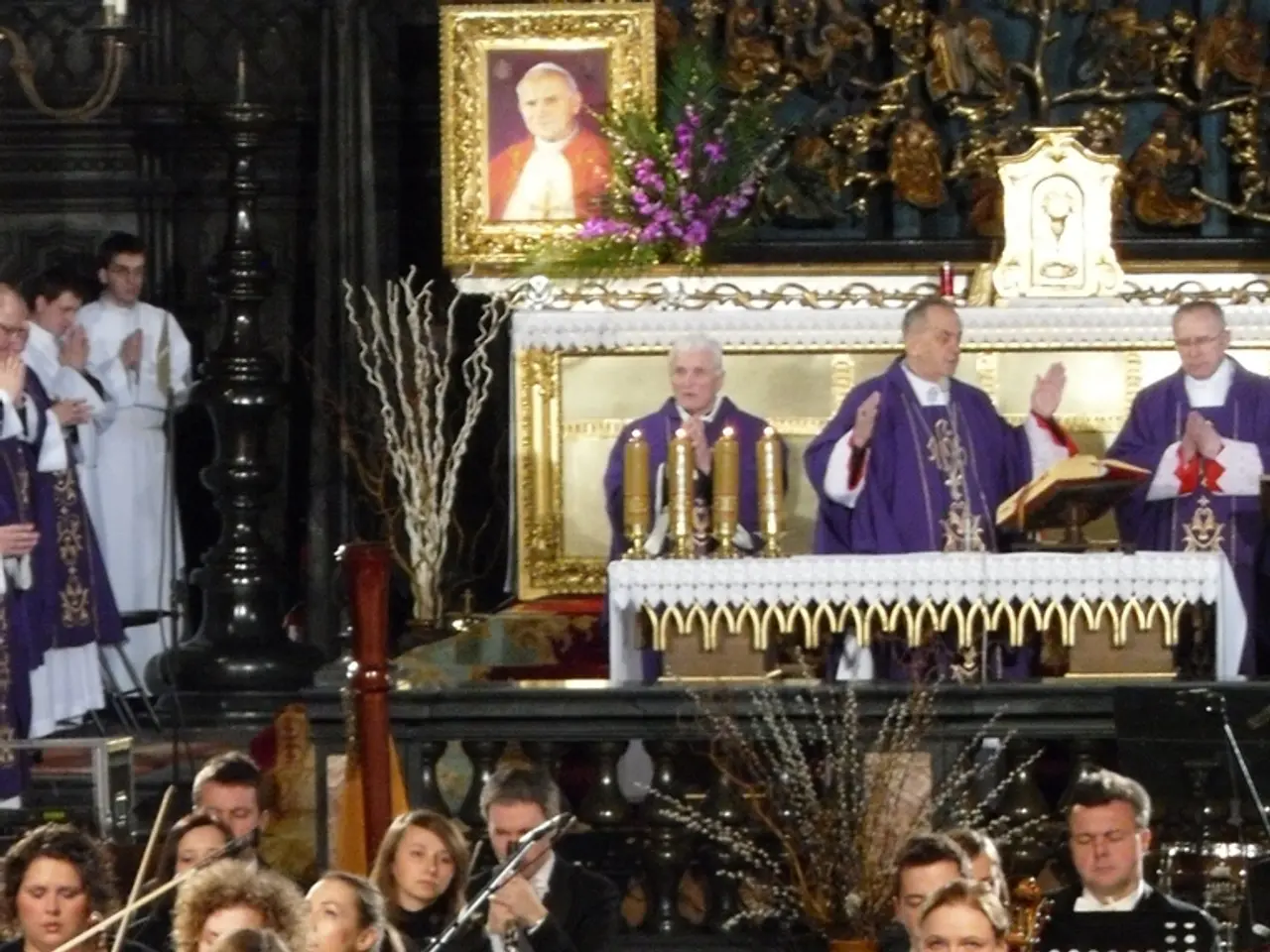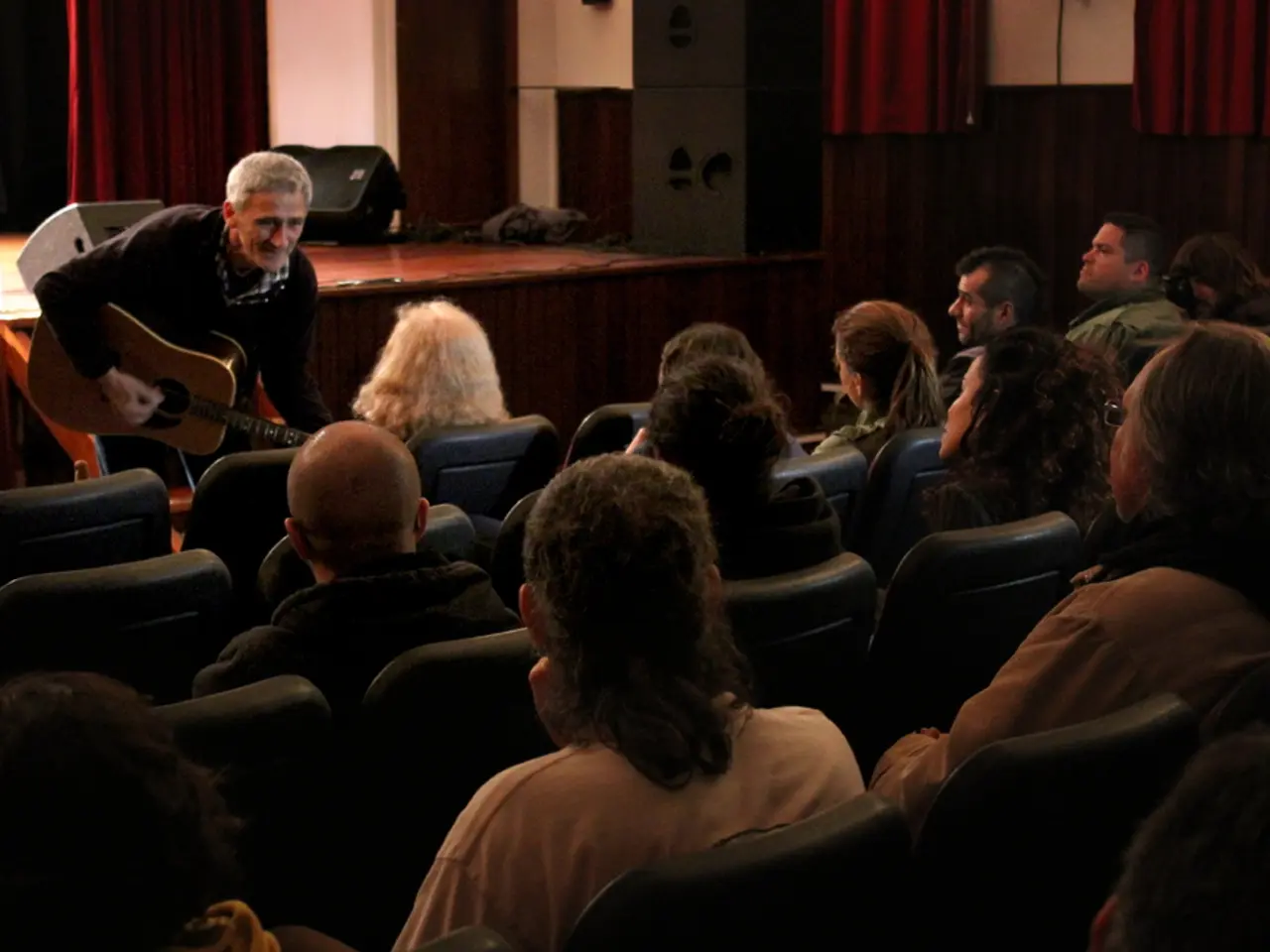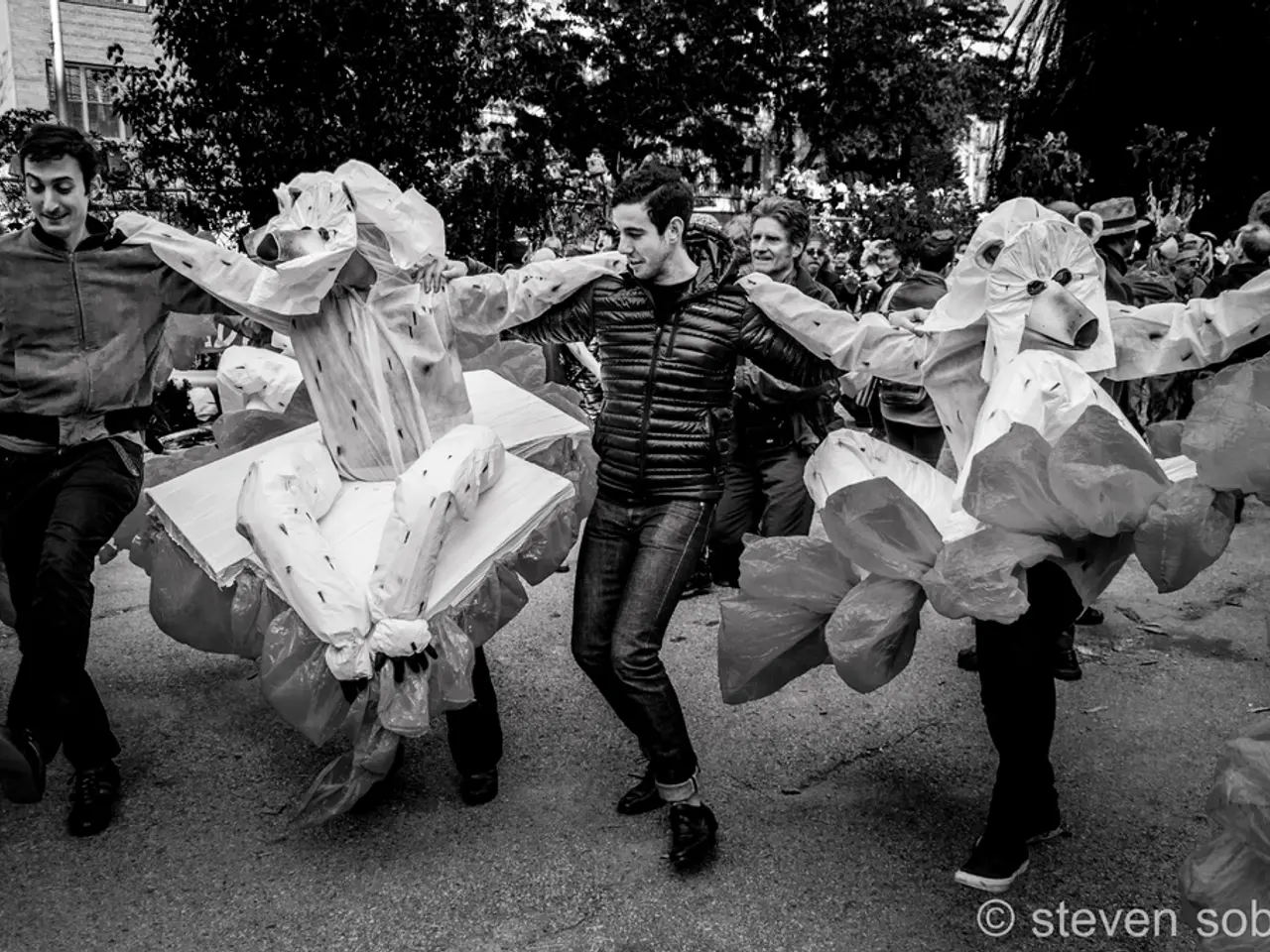Project Kwartin: Life's Seventh Chapter - Chapter 7
In a small Jewish town in Ukraine, Zawel Kwartin, a renowned cantor, was born and raised. The tradition of cantorial music was deeply rooted in the local synagogue life, shaping Kwartin's musical and spiritual development.
Kwartin's father, an important musical influence, performed the home ritual of the Sabbath with intensive singing, accompanied by his children who tried to follow him by ear. His Friday night performances were a source of pride, as people gathered under their window to hear them.
During the Sabbath meal and musical performances, Kwartin's father would improvise new melodies for zemiros hymns and lead the family in prayers in the style of various Chassidic rabbis. However, his behavior was a form of local contentious practice, noted with winking irony in Kwartin's book, Mayn Lebn. He would yell at his children if they became tired during the performances, and on occasions, he would criticize and even physically punish Kwartin.
Kwartin's father's musical style was not the only influence in his life. He also remembers four main amateur prayer leaders who regularly conducted services on the Sabbath. Among them, Eliezer stood out with his harsh voice but lovely prayer leading and improvisation skills. Eliezer was an inexhaustible spring of prayer-melody ideas, and he had the most heartfelt voice of them all, with a beautiful lyric tenor.
Khayim Hodes had a voice that could tear the drums from your ears and was a warm prayer leader. Aaron Hodes had a lovely voice but lacked the improvisation skills of the others. Benye the shoykhet's son had a "sideways voice" but was very knowledgeable about nusakh hatefillah.
Kwartin invites his readers to enjoy the image of soulful small-town Jews and presents their unpretentious but deeply moving art as a paradigm for his own cantorial style. In Chapter 7 of Mayn Lebn, Kwartin focuses on the culturally intimate Jewish space of the synagogue, telling stories about the relationship of Jews to non-Jews and the musical life in his hometown.
Kwartin's book also describes a committed musical environment where debates about religious music were a form of local contentious practice. His father's behavior during the Sabbath meal and musical performances was a part of this contentious practice. Despite the challenges, Kwartin was destined to perform on world-class stages and great synagogue pulpits later in his career.
These influential prayer leaders and their styles made the deepest and most powerful impression on Kwartin's entire musical career. Kwartin unabashedly romanticized descriptions of listening to great prayer leaders as a tribute to the obscure small-town Jewish singers he grew up listening to. His musical upbringing in a small Jewish town in Ukraine provided a paradigm of Jewish art that shaped his music and later career.
Kwartin's musical upbringing, deeply influenced by the local prayer leaders and his father's intensive singing during Sabbath, laid the foundation for a career that would see him performing on world-class stages. The culturally intimate Jewish space of the synagogue, where music was a source of pride and debate, offered Kwartin a paradigm of Jewish art, particularly in the form of cantorial music and improvisation.








